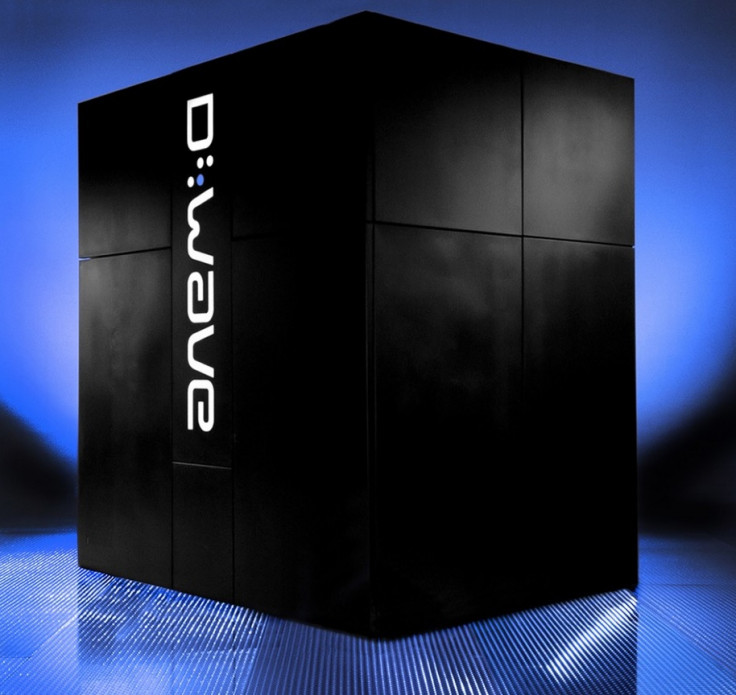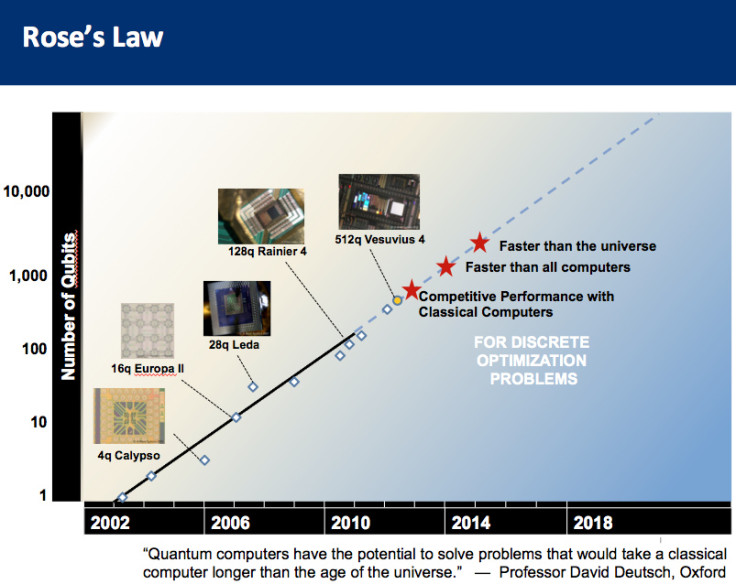Google plans 'watershed' quantum computing announcement in December

A "watershed announcement" from Google regarding quantum computers is expected to be made on 8 December, according to a board member of the quantum computing firm D-Wave. Steve Jurvetson gave no other details about what Google is planning, though his comments were related to an image projecting the predicted exponential progress of quantum computing over the next few years.
Since they were first theorised by the physicist Richard Feynman in 1982, quantum computers have promised to bring about a new era of ultra-powerful computing. Google has been among the companies pioneering their development, using systems built by the Canadian firm D-Wave to explore the technology's potential for advancing artificial intelligence and machine learning.
"Stay tuned for what may be a watershed announcement from Google on Dec 8," Jurvetson wrote in a recent comment to the image he posted to Flickr more than three years ago. First spotted by Google news site 9to5Google, Jurveston's remarks come as D-Wave announced that a 1,000+ qubit quantum computer has been sold to national security research institution Los Alamos.

Jurvetson's Flickr image depicts Rose's Law, which mimics Moore's law in charting the growth of computational power of quantum computers over time. According to the graph, extrapolated from data points taken from previous quantum computing milestones, the point at which quantum computers surpass conventional computers should be in the very near future.
What is quantum computing?
Quantum computers replace traditional bits (used in digital communications) with quantum bits, or qubits. Qubits exist in a state of superposition, meaning they can be in both states at once (zero and one), rather than the single binary states of traditional computers.

This allows computing challenges to be solved that are beyond the reach of today's fastest supercomputers. Potential applications can be found in a variety of fields, from space travel to artificial intelligence.
"If we suspend disbelief for a moment, and use D-Wave's early data on processing power scaling, then the very near future should be the watershed moment, where quantum computers surpass conventional computers and never look back. Moore's Law cannot catch up," Jurvetson said in his recent post.
"A year later, it outperforms all computers on Earth combined. Double qubits again the following year, and it outperforms the universe... Meaning, it could solve certain problems that could not be solved by any non-quantum computer, even if the entire mass and energy of the universe was at its disposal and molded into the best possible computer."
Despite such theoretical potential, quantum computing researchers are yet to build a general-purpose quantum computer. Before this can be achieved, a "hybrid quantum-classical" algorithm needs to be developed. Researchers at Microsoft recently suggested that this advance could be up to a decade away.
"While it will be fascinating to see if the next three years play out like Rose's prediction, for today, perhaps all we should say is that it's not impossible," Jurvetson concluded in his Flickr post. "And what an interesting world this may be."
© Copyright IBTimes 2025. All rights reserved.




















